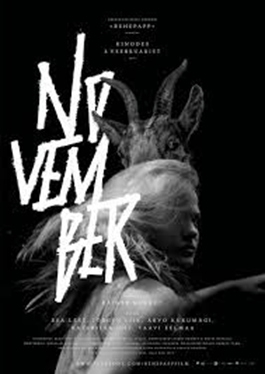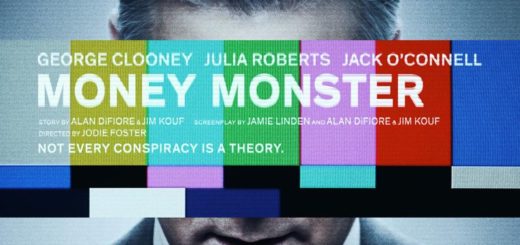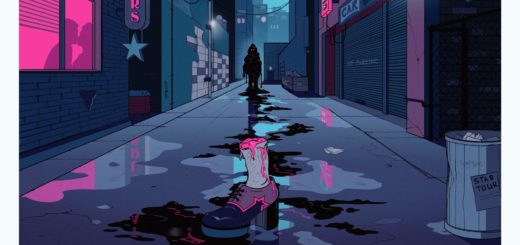NOVEMBER Review

Director: Rainer Sarnet
Genre: Horror, Fantasy
Year: 2018
There was a brief period in my life where I was really convinced that my next cinematic project should be a black-and-white horror film spoken entirely in Latin. Alas, the scope of this project was just a little too voluminous to ever successfully take flight. It was something that simmered in the back of my mind for months on end. Whether it will ever get made really depends on my current state of mind, but perhaps nothing has both enriched and hampered my drive to create this film than seeing NOVEMBER, a surrealist piece of Estonian folklore that’s everything my mind could have ever dreamed up and more.
Not to make this too much about myself, but there was something about NOVEMBER that really resonated with me. As an eastern European with a hard-on for Haneke, a deeply rooted respect for Bergman, and endless fascination for the mind of Lynch, I am left rather flabbergasted by director Rainer Sarnet’s Grimm fairytale. All that is to say, yes, NOVEMBER is THE WHITE RIBBON soaked in SEVENTH SEAL poetics and wrung out onto an ERASERHEAD animatronic. The comparisons don’t really end there either. Calling to mind the twisted dementia of HARD TO BE A GOD and Bela Tarr’s entire oeuvre, NOVEMBER is less pastiche and more patchwork: a foreboding, pagan epic that forms something wholly unique.

He whispers in her ear, “We have free Wi-Fi in Estonia”
Sarnet wears his influences on his sleeve, perhaps because his film doesn’t need to prove itself to anyone. As often as one might identify an homage, Sarnet shocks his viewer with something unabashedly ephemeral. Masterfully captured and gorgeously presented, NOVEMBER is a postmodern horror film, one that does away with elementary scare tactics and goes for something far more guttural. It’s a study of sounds and movements, spit and fecal matter. Where Robert Eggers’ THE WITCH laid itself narratively bare, NOVEMBER actively works to mislead its viewer with a far broader tapestry on communal identities and their Faustian psychologies.
The mileage one gets out of such a film is entirely subjective. But when all is said and done, it’s NOVEMBER’s aesthetic appeal that makes or breaks the film for viewers. There’s a formal trailblazing that really enriches the overall experience. From its modernist soundtrack to its crisp photography, NOVEMBER is constantly interested in applying contemporary photographic, musical, and storytelling techniques to a narrative that is rooted in tradition. It dares itself to reverse the Walt Disney sanitation of ancient folktales and relish the rape, manure, and viscera of living through the black plague. It does so with a tongue-in-cheek cynicism, largely aware of its unique sense of humor, resulting in a film that’s pushing more artistic barriers per second than whatever Hollywood categorizes as “art-house” these days (see: BLADE RUNNER 2049, for better or worse).

Pictured: Estonian woman angry that there is no free Wi-Fi in America
It’s this unfettered committal to the bizarre that really takes NOVEMBER home. Sarnet’s film is willfully inaccessible and certainly not everyone’s cup of tea—I have yet to really figure out where I stand with it myself. It’s less a horror film than an experimental pagan history lesson. But there’s something truly admirable about such bold filmmaking. As little sense as NOVEMBER makes, and as much as it drags in its second act—the entire film ought to be 30 minutes shorter—it’s a truly challenging book adaptation, the type of film that is completely unafraid to alienate an entire theater. Its first scene introduces a polytheistic entity that viewers associate with conflict and malice, but NOVEMBER has far more complex intentions, taking the scenic route in order to deliver a more tragedian climax. It’s rarely entirely successful, but it’s unfathomably brave, and in a cinematic landscape dominated by safe choices, being weird is devilishly refreshing.
Verdict: Recommend



